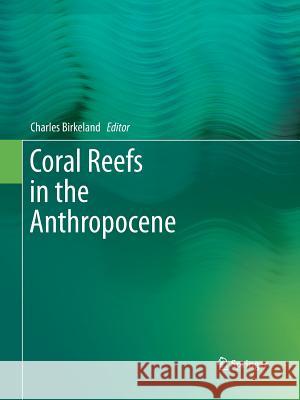Coral Reefs in the Anthropocene » książka
topmenu
Coral Reefs in the Anthropocene
ISBN-13: 9789402403701 / Angielski / Miękka / 2016 / 271 str.
Kategorie:
Kategorie BISAC:
Wydawca:
Springer
Język:
Angielski
ISBN-13:
9789402403701
Rok wydania:
2016
Wydanie:
Softcover Repri
Ilość stron:
271
Waga:
0.65 kg
Wymiary:
27.94 x 20.96 x 1.52
Oprawa:
Miękka
Wolumenów:
01
Dodatkowe informacje:
Wydanie ilustrowane











